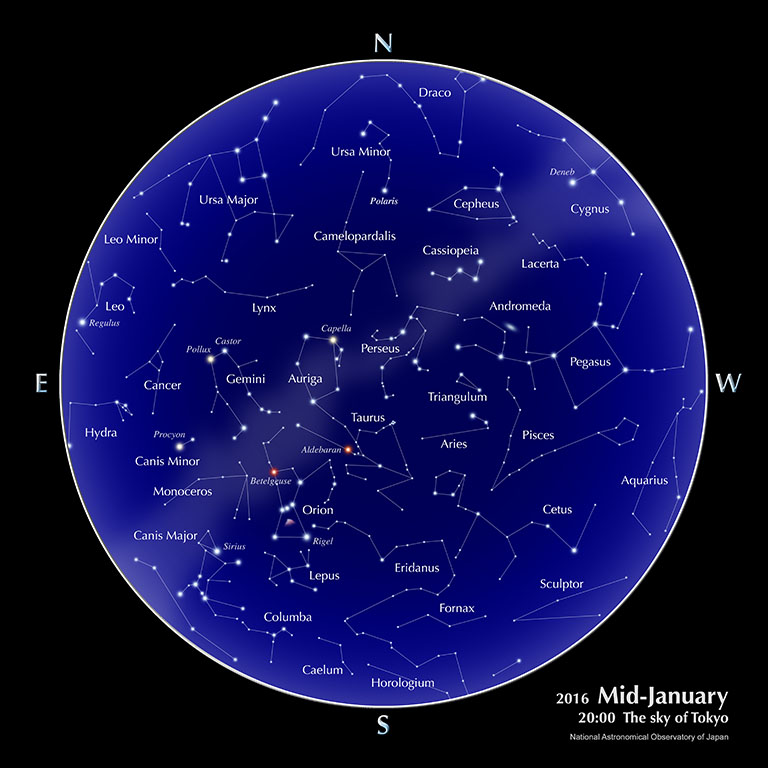Astronomical Information | 2016 | January
The sky of Tokyo

Calendar (January)
| 1 | New Year’s Day [Shogatsu] (national holiday) |
| 2 | Last Quarter Moon |
| 3 | Earth passes perihelion |
| 4 | Quadrantid Meteor Shower peaks around 17:00 (For Japan, the best visibility will be before dawn on the 5th. About 15 meteors per hour are expected. Because the timing of the maximum is bad and the Moon will be bright, conditions are not favorable for observations.) |
| 5 | Mercury at stationary point |
| 9 | Jupiter at stationary point |
| 10 | New Moon |
| 11 | Coming-of-Age Day [Seijin-no-hi] (national holiday) |
| 14 | Mercury at inferior conjunction |
| 17 | First Quarter Moon |
| 24 | Full Moon |
| 26 | Mercury at stationary point |
The days for the peak activities of the meteor showers are based on the predictions of IMO (International Meteor Organization).
Planets
- Mercury
- For the first part of the month, Mercury is located low in the western sky right after sunset. It reaches inferior conjunction on the 14th, and later reappears low in the eastern sky before sunrise.
- Venus
- Venus can be seen low in the south-eastern sky before sunrise. Its brightness is -4.1 magnitude to -4.0 magnitude.
- Mars
- Mars moves from the constellation Virgo to the constellation Libra. It can be seen in the southern sky before sunrise. Its brightness is 1.3 magnitude to 0.8 magnitude.
- Jupiter
- Located in the constellation Leo, Jupiter rises after 22:00 in the beginning of the Month and after 20:00 in the last part of the month. It can be seen in the southwestern sky before sunrise. Its brightness is -2.2 magnitude to -2.4 magnitude.
- Saturn
- Located in the constellation Ophiuchus, Saturn can be seen low in the south-eastern sky before sunrise. Its brightness is 0.5 magnitude.
Source: Ephemeris Computation Office, NAOJ
With the “Sky Viewer” you can easily explore the appearance of a typical urban night sky (planets and constellations are visible).The Celestial Phenomena section of the glossary explains the planetary phenomena terms: greatest elongation, opposition, conjunction, stationary, etc.